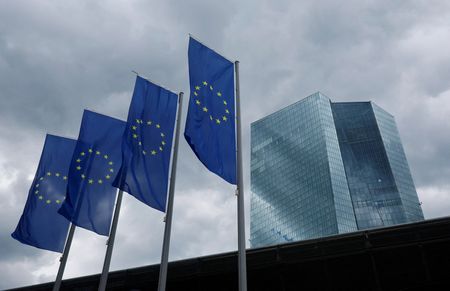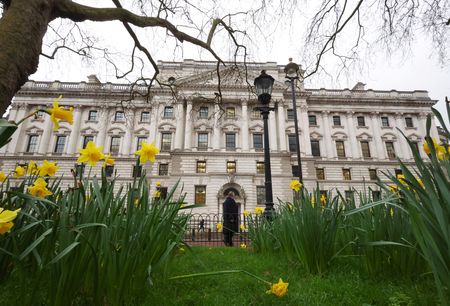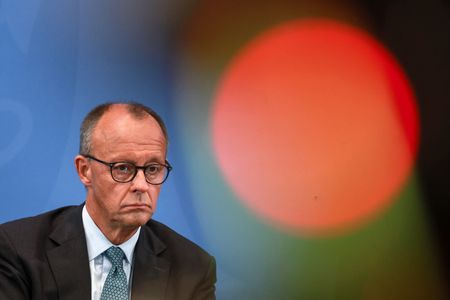By Indradip Ghosh
BENGALURU (Reuters) -The European Central Bank is done cutting interest rates as a steady economic outlook and near-target inflation put the central bank in a comfortable place, according to a majority of economists polled by Reuters.
Economists were divided last month on the possibility of further rate reductions, but recent data have shifted sentiment. Inflation remains close to the ECB’s 2% target, the economy continues to show resilience, and unemployment is at a record low.
That is in contrast with the U.S. Federal Reserve, which is weighing the risk of higher inflation against a weakening labour market while also facing serious questions regarding its independence.
Several ECB Governing Council members, including President Christine Lagarde, expressed concerns over the eroding of Fed independence, but that was unlikely to affect the euro zone central bank’s policymaking, at least for now.
A strong majority of economists – 66 of 69 – in the September 1-4 Reuters poll predicted the ECB, which cut its deposit rate by a total of 200 basis points between June 2024 and June 2025, would hold the rate at 2% on September 11 for a second straight meeting.
That was in line with market pricing, but in contrast to expectations of a 25-basis-point Fed rate cut this month.
“The ECB is done now and they’re just going to be sitting here for a while…there’s just no pressure to ease at this point,” said Claus Vistesen, chief euro zone economist at Pantheon Macroeconomics.
“Inflation is now around target and unemployment is still at a record low. That’s a soft landing. In that kind of environment, it’s completely natural for the central bank to take the opportunity to lean back and wait it out.”
Nearly 60% of economists, 40 of 69, predicted the ECB would hold its rates this year, while a slight majority – 33 of 58 – saw the rate at 2% or higher by end-2026.
Inflation rose slightly in August to 2.1% but remains close to the ECB’s target. Poll medians suggested inflation would hover around that level until at least 2028.
The bloc’s economy is projected to grow 1.2% this year and 1.1% next year, before accelerating to 1.4% in 2027, largely unchanged since June. Hopes of upcoming fiscal support, particularly from Germany, underpin this view.
“I don’t think there’s currently anything major hanging over Europe’s head that would bring it down…The region does have a really good opportunity to continue growing into 2026 and beyond and actually do a much better job,” said Julie Ioffe, European economist and macro strategist at TD Securities.
“But there are enough risks we should be cognizant of and keep an eye on.”
Germany, the largest economy in the region, contracted 0.3% last quarter on slowing demand from its top trading partner, the U.S.
The EU and the U.S. struck a framework trade deal in late July, but only the baseline tariff of 15% has so far been implemented.
Political instability in countries like France and Spain further clouds the outlook, prompting caution as the ECB navigates its policy path.
(Other stories from the Reuters global economic poll)
(Reporting by Indradip Ghosh; Polling by Aman Kumar Soni and Debrah Gomes; Editing by Toby Chopra)










